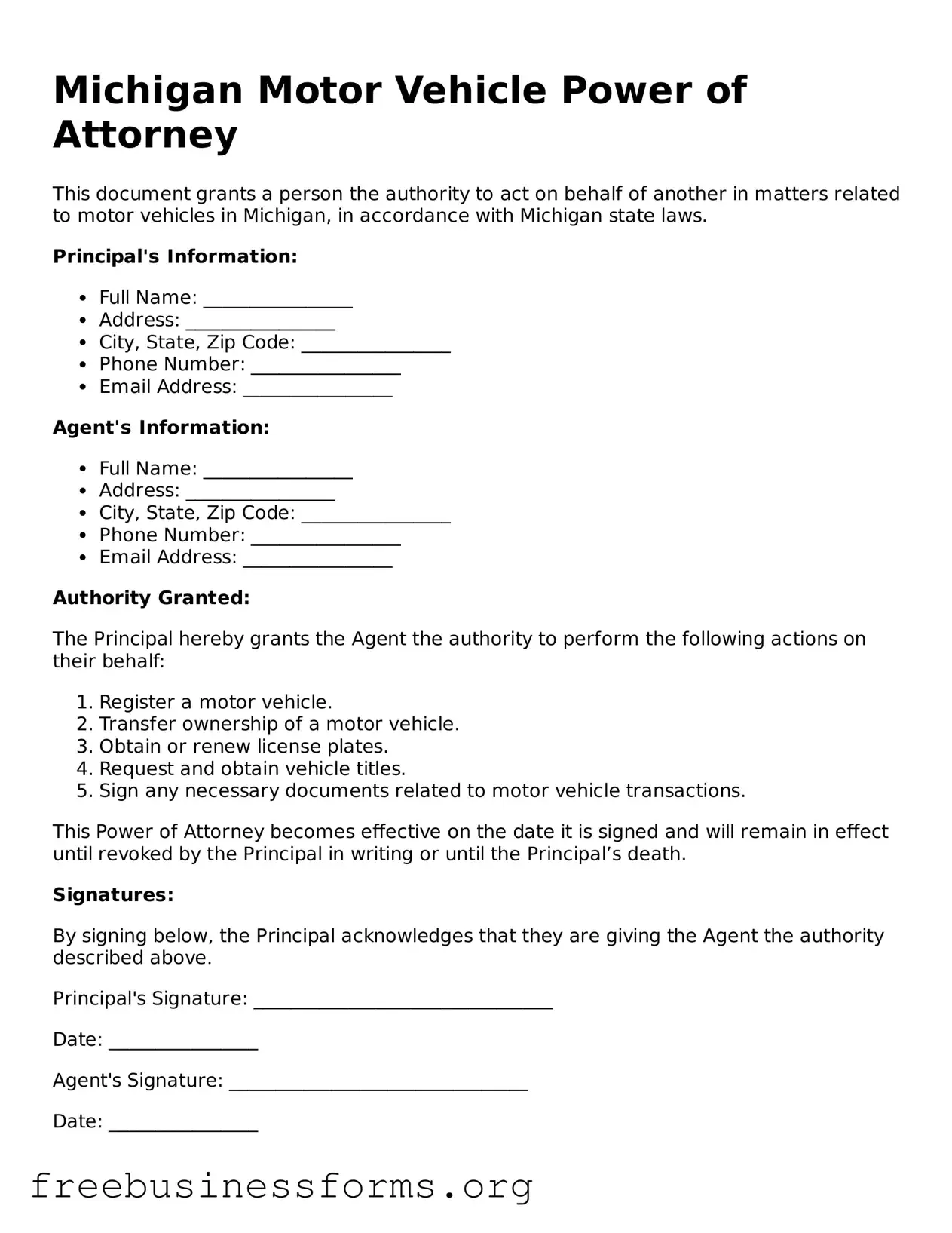Blank Motor Vehicle Power of Attorney Template for Michigan
The Michigan Motor Vehicle Power of Attorney form allows an individual to designate another person to handle specific tasks related to their vehicle, such as transferring ownership or registering a vehicle. This legal document simplifies the process for those who may be unable to manage these responsibilities themselves. Understanding its use and requirements can help ensure that your vehicle-related matters are handled smoothly and efficiently.
Open Form Here

Blank Motor Vehicle Power of Attorney Template for Michigan
Open Form Here

Open Form Here
or
↓ PDF File
Quickly complete this form online
Complete your Motor Vehicle Power of Attorney online quickly — edit, save, download.